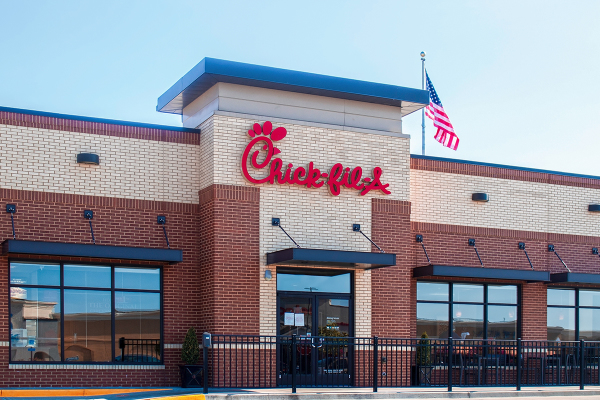HopeMob CEO and Retired Pastor Shaun King Talks Churches, Technology, New Startup
CP: Now that you're outside of the church so to speak, you have a different perspective or vantage point on some things. What are some of your observations on some of the things churches could be doing or should do better, or maybe stop entirely?
King: There are some churches that are amazing with technology and amazing with social media and they do it really well. Those by and large are the exception to the rule. There are tens of thousands of churches in our country, but probably only dozens that do technology really well. Those churches that understand technology and social media and do it well, some of them do it really well and they're world class, like on par with Starbucks, MTV or Whole Foods or any other world-class brand. Some churches that get it, they really get it and they're amazing, but those are the exceptions.
I've visited so many churches over the past two years and consistently I see that pastors have compassion and have a huge heart, but there are three things that I feel like churches by and large have a lot of room for improvement in. The first, I find more and more, or particularly now that I'm out of church, and I found this true for me but I found it true for so many other people. Most people in church feel like their skills, the skills that have taken them sometimes decades to hone and craft, sometimes feel like those skills are greatly underused. Even in smaller churches in small town America, or megachurches in the big cities in the world who have really well-developed skills. They've got advanced degrees or decades of experience, and when they come to church they just feel like they have to forget about that temporarily.
I think it hurts engagement in that sense, so that a lot of people feel like they have to temporarily suspend their skills, their gifts and even sometimes their intelligence to volunteer and serve in churches that offer, I think, sometimes the wrong opportunities for people to serve. Ultimately, those people become disengaged. Created in that, churches miss out on an opportunity to have really world-class volunteers do amazing work. Most churches, I'm learning, really don't even know the gifts and skills that people have in the church. They know some of it, but they don't have their finger on who the people are that are there and what they do.
Secondly, very few churches are effectively using social media to connect people together in the church, but to also make genuine connections with people outside of the church. The whole world is on Twitter and Facebook and Instagram, and churches are still primarily using those technologies like newsletters. They're not doing a lot of genuine connecting – people to people, people to causes, people to God. I think there's a lot of room for improvement there. A few churches are doing it well but very few. Those are the two main things actually that I'm big on (read some others at King's blog). There are other things, but what makes it difficult is most pastors, they're working really hard and they're doing what they know best and so these criticisms sting a little bit … That's why I think that first thing could really help pastors because pastors and leaders and churches could really increase their reach if they fully maximized the people that are there. Then the burden wouldn't be so heavy.
This wasn't something I did well – I did social media well, but I absolutely didn't empower volunteers well when I was a pastor. I empowered volunteers to do the things I wanted them to do, but that was rarely things that they did well. If I needed people to fold chairs or pass out bulletins, the typical usher-greeter kind of thing, they'd do them. What I regularly missed was that I might have a world-class teacher in the room. It's okay to have her passing out bulletins, but it would be a more effective use of her gifting to empower her to teach. Often, we just really under-utilize people with business skills. We even had people in our church who had great technological skills but under-utilized them. I don't think it's an easy system to develop, but it's a worthwhile system to develop because pastors and church staffs tend to be really stressed and overworked, but then the mass of people that are there tend to be really under-utilized. That thing can really balance itself out if pastors knew some next steps to take.
CP: Speaking of social media engagement, how can pastors go about that effectively? I mention that because a little while ago you got into a Twitter debate of sorts with Pastor Rick Warren of Saddleback Church about a comment he made on Obamacare. Pastor Mark Driscoll of Mars Hill Church also tweeted during the inauguration a comment critical of President Obama's Christian faith. Can you comment on public conversations on these open platforms?
King: Those cases in particular, including myself, are probably bad examples of how to use social media to reach people. For instance, Pastor Rick Warren … I had tweeted some things and I had several people who up to that point saw him as an apolitical person. They understood he had political leanings but they followed him online. But he made some statements that were really kind of harsh and critical. I had several friends, even family members, who said, "You know what, I'm going to unfollow this guy. This stuff is not what I'm wanting to hear. From his perspective, he really believed in what he was saying and I strongly disagreed with what he was saying. In the end, though, I think he and I both probably turned more people off than we wish we did with our engagement with each other.
It's the same thing with Mark Driscoll, but he said something that I just thought was, and still do, outrageous. It was on President Obama's inauguration day and I was in great spirits, it was also Martin Luther King Day. He wrote a tweet saying he didn't understand how a president could lay his hand on a Bible he didn't believe and pray to a God he didn't know. I was just shocked by that. I have several friends who work in the White House, including my friend Joshua DuBois who was the faith director for President Obama. President Obama is actually a very devout believer, much more than I think the country understands and much more than he cares to talk about.
I was just so incensed by it. I totally lost it. I was totally uncouth, I was profane, I was just irate. I just couldn't believe it. Again, I think if you challenge Rick Warren or Mark Driscoll on one of those statements, I don't think either one of them would take them back. They meant what they said. Mark Driscoll never apologized for that. … I've met Pastor Rick Warren several times, but I'm an outsider. Those things play to their core audience, so Mark Driscoll's core audience, they probably loved that. Same thing with Rick Warren, his core audience is primarily conservatives. When he critiques President Obama's policies or views, they love that stuff. I'm not their core audience.
From an advisement standpoint, you do have to engage your core audience but I would generally advise people to stay away from politics if you're a senior pastor. Not politics in life, but unless you feel that strongly about it – and I got the feeling that both of them did. Both of those cases are different from each other, but [they are] unique examples of the complexities of social media and the church and pastors and influence.
I think what works for megachurch pastors, and there are only a few of those ... If there are 500 megachuch pastors, there are 10,000 pastors that aren't megachurch pastors. … The rules for a megachurch pastor aren't necessarily the same rules for a small church pastor or a medium church pastor. When you pastor 10,000 people and you have 500,000 people that follow you, you can't necessarily use social media in the same way as you can when you pastor 200 people and have 500 people following you.
My advice to pastors and church leaders in general is to engage people as personally as you can for as long as you can. If you have a small church, your social media presence should be a really high engagement where you reply to Tweets, message people back and forth on Twitter or comment on people's feeds on Facebook. There's no excuse to not do it that way. But then as your church and influence grow, it becomes increasingly [difficult] to manage all of those, sometimes tens of thousands or hundreds of thousands of connections. My advice is always engage people as deeply as you can for as long as it's manageable.
The challenge is, small and medium-sized church pastors model their social media after megachurch pastors, not understanding that megachurch pastors are primarily doing it the way they're doing it because they can't do it any other way. You can't reply to every tweet, you can't engage with every person. We just spoke about Mark Driscoll and Rick Warren, they each have hundreds of thousands of followers. They can't even check all of their "@" messages and replies, there are too many. Yet, most small church pastors and medium church pastors, those guys and people like them are kind of their heroes, and they then base their social media strategies on what they see their heroes doing. It ends up being ineffective, because when you're a small church pastor you should really engage people in a very human way and continue to do that as your church grows, and then slowly adjust your strategy if your church becomes just too difficult for you to manage the day-to-day messaging of it all.
CP: Finally, besides Upfront, do you have any future projects that you're working on, such as a book or anything?
King: I definitely have some things in my mind, but nothing that I'm working on. I've been planning on writing a book … on life goals and helping people to set their life goals and achieve them. I haven't started on it. I have a few other charity projects that I hope to do eventually, but nothing that I've started on. Upfront really is top of mind for me right now.
More information about Upfront can be found online at BeUpfront.com, while King can be found on Twitter at https://twitter.com/shaunking. Check back with CP for an upcoming exclusive report on Upfront.





















